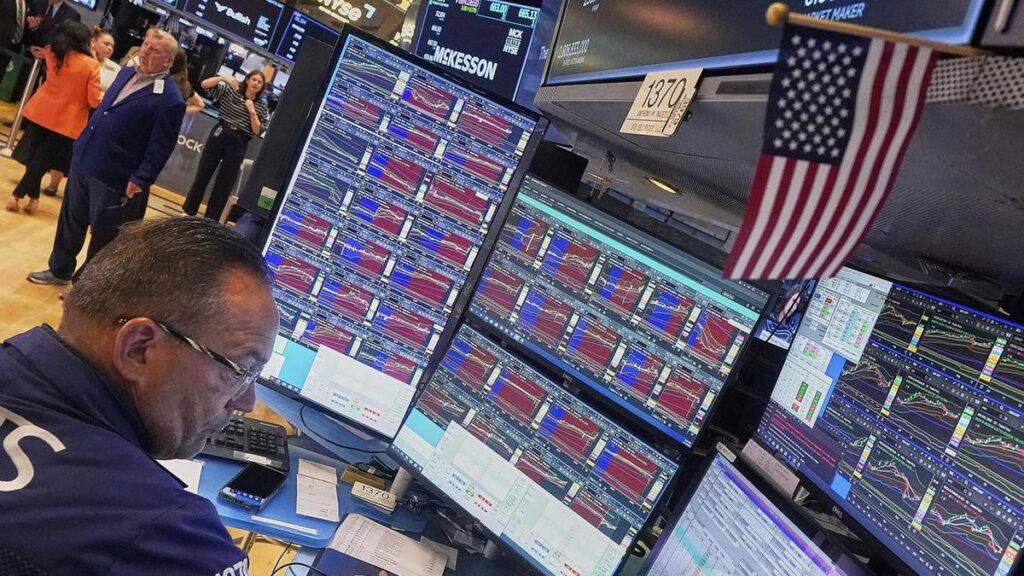
UPDATE: Wall Street’s main indexes plunged early Thursday as a surprising surge in producer prices sent shockwaves through the market, dampening investor hopes for interest rate cuts by the Federal Reserve. The Producer Price Index (PPI) jumped 3.3 percent year-over-year in July, significantly above the 2.5 percent forecast by economists, according to the Labor Department.
In immediate trading, the Dow Jones Industrial Average fell 164.29 points, or 0.37 percent, to 44,757.98. The S&P 500 lost 16.84 points, or 0.26 percent, at 6,449.74, while the Nasdaq Composite dropped 22.69 points, or 0.10 percent, landing at 21,690.45.
This unexpected inflation report has led traders to scale back expectations for potential rate cuts this year, now estimating a 58 basis point cut compared to 63 basis points before the report. Although a quarter-percentage-point cut is still fully anticipated for September, the market is reacting cautiously.
“It’s sending a mixed message about the economy,” stated Peter Andersen, founder of Andersen Capital Management in Boston. “We shouldn’t be so quick to conclude that we need to cut interest rates.”
Concerns are mounting that US tariffs on imports may soon start to influence prices, potentially undermining the recent rally that lifted the S&P 500 and Nasdaq to record highs. On Thursday, nine of the eleven S&P 500 sectors experienced declines, with materials suffering the most at 1.2 percent. Rate-sensitive small-caps and housing stocks also fell over 1.0 percent each.
Despite the economic turmoil, a separate report indicated that new applications for jobless benefits fell last week, signaling low layoffs—a positive sign in a shaky labor market. However, Mary Daly, president of the San Francisco Fed, has pushed back against the notion of an aggressive 50-basis-point cut next month, contradicting Treasury Secretary Scott Bessent‘s earlier remarks on the possibility.
Major companies are feeling the pinch as well. Cisco Systems shares dropped 1.0 percent following a forecast that failed to excite investors. Deere & Co plummeted 8.0 percent after reporting lower quarterly profits and tightening its annual profit forecast. Similarly, Tapestry saw a staggering 17.6 percent drop after forecasting profits below expectations, both companies citing tariff impacts.
Investors are also poised to listen for insights from Alberto Musalem, president of the St. Louis Fed and a voting member of the Federal Open Market Committee, who is expected to speak later in the day.
As market uncertainty continues, declining issues outnumbered advancers by a 5.05-to-1 ratio on the NYSE and 3.38-to-1 on the Nasdaq, highlighting investor fears. The S&P 500 recorded four new 52-week highs with no new lows, while the Nasdaq Composite noted 24 new highs and 31 new lows.
Stay tuned as the situation develops and the implications for the Federal Reserve and broader economy unfold.






